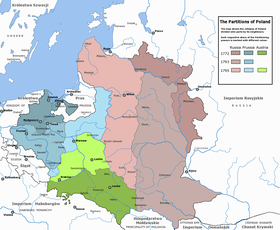WW2 alliances is pretty complicated when you look at it; it seems like a lot of people who fought on the Axis side were more in fighting a common enemy, and less aligned with the Nazis.
To this point
Austrian Anschluss - 12 March 1938
Neutrality Declaration of Sweden - 29 May 1938
Chamberlain's Munich Agreement - 30 September 1938
Sudetenland handed over to Hitler - 1 October 1938
Neutrality Declaration of Estonia, Latvia and Lithuania - 18 November 1938
Czechoslovakia occupied by Hitler - 15 March 1939
Stalin-Hitler Molotov-Ribbentrop Pact - 23 August 1939
Hitler invades Poland - 1 September 1939
UK declares war on Hitler - 3 September 1939
France declares war on Hitler - 3 September 1939
Canada declares war on Hitler - 10 September 1939
Stalin invades Poland - 17 September 1939
Stalin compels Mutual Assistance Pact with Estonia - 28 September 1939
Stalin Invades Finland - 30 November 1939
Stalin compels Mutual Assistance Pact with Latvia - 5 October 1939
Stalin compels Mutual Assistance Pact with Lithuania - 10 October 1939
Stalin recognizes the Finnish government and sues for peace - 29 January 1940
Canada announces Canadians were free to join the Finnish Forces - 1 March 1940
Stalin and Finland come to terms - 12 March 1940
Hitler invades Denmark and Norway- 9 April 1940
Hitler invades Belgium, Netherlands and Luxembourg (BeNeLux) - 10 May 1940
Dunkirk - 26 May to 4 June 1940
Stalin invades Estonia, Latvia and Lithuania - 15 June 1940
Fall of France - 25 June 1940
Stalin's Soviet Union expelled from the League of Nations - 14 December 1940
Hitler invades Stalin's Soviet Union - 22 June 1941
Hitler invades occupied Latvia - 22 June 1941
Finland declares war on Stalin's Soviet Union - 25 June 1941
Hitler invades occupied Lithuania - 10 July 1941
Hitler invades occupied Estonia - 7 July 1941
UK's Churchill and Stalin sign Anglo-Soviet Agreement - 12 July 1941
Polish-Soviet Sikorski-Mayski Agreement - 30 July 1941
Japan Attacks Pearl Harbor - 7 December 1941
US Declares War on Germany - 11 December 1941
Liberation of Stalingrad - 2 February 1943
Tehran Conference - 28 November 1943
Liberation of Leningrad - 27 January 1944
Lithuania re-occupied by Stalin - 13 July 1944
Latvia re-occupied by Stalin - 17 July 1944
Poland re-occupied by Stalin - August 1944
Estonia re-occupied by Stalin - 16 September 1944
Finland surrenders to Stalin - 19 September 1944
Yalta Conference - 4 February 1945
Fall of Koenigsberg to Stalin - 9 April 1945
VE Day - 8 May 1945
Repatriation of the Cossacks by UK and US - 28 May 1945
Potsdam Conference - 17 July 1945
Moscow Conference the start of Orwell's "Cold War" - 16 December 1945
On 28 May 1945 the British transported 2,046 disarmed Cossack officers and generals—including the
cavalry Generals Pyotr Krasnov and
Andrei Shkuro—t
o a nearby Red Army-held town and handed them over to the Red Army commanding general, who ordered them tried for treason. Many Cossack leaders had never been citizens of the Soviet Union, having fled revolutionary Russia in 1920;
[16] hence they believed they
could not be guilty of treason.
Some were executed immediately. High-ranking officers were tried in
Moscow, and then executed.
On 17 January 1947 Krasnov and Shkuro were hanged in a public square. Gen. Helmuth
von Pannwitz of the Wehrmacht, who was instrumental in the formation and
leadership of the Cossacks taken from German POW camps to fight the Soviets, decided to share the Cossacks' Soviet repatriation and was executed for war crimes, along with five Cossack generals and
atamans in Moscow in 1947.
[17]
On 1 June 1945 the UK placed 32,000 Cossacks (with their women and children) into trains and trucks and delivered them to the Red Army for repatriation to the Soviets;
[18] similar repatriations occurred that year in the US occupation zones in
Austria and
Germany.
Most Cossacks were sent to the gulags in far northern Russia and
Siberia, and many died; some, however, escaped, and others lived until the
amnesty of 1953 (see below). In total,
some two million people were repatriated to the Soviets at the end of the Second World War.
[19]
Soviet citizenship controversy[edit]
One of the core controversies that led to popular outcry and protests was the British command attitude to establishing Soviet citizenship per Yalta agreement, as the camp contained
a broad mix of citizens of various countries, including
those who left USSR long before the war and
obtained citizenship of other countries long before,
or never were Soviet nationals. British
Foreign Office sent a
telegram ordering that
"any person who is not (repeat not) a Soviet citizen under British law must not (repeat not) be sent back to the Soviet Union unless he expressly desires", which was
ignored by the British command on the ground.[20]
Brigadier Toby Low (later Lord Aldington) who was the
chief of staff to the British forces issued an order stating
"individual cases will not be considered unless particularly pressed ...
In all cases of doubt, the individual will be treated as a Soviet national". As result of this policy,
citizens of many countries were sent to USSR as "Soviet citizens" in a hasty operation and no right to appeal. In Tolstoy description,
even people displaying a French passport or British First World War medals were handed over to Soviets.
[20][21]
You sort out that mess.







